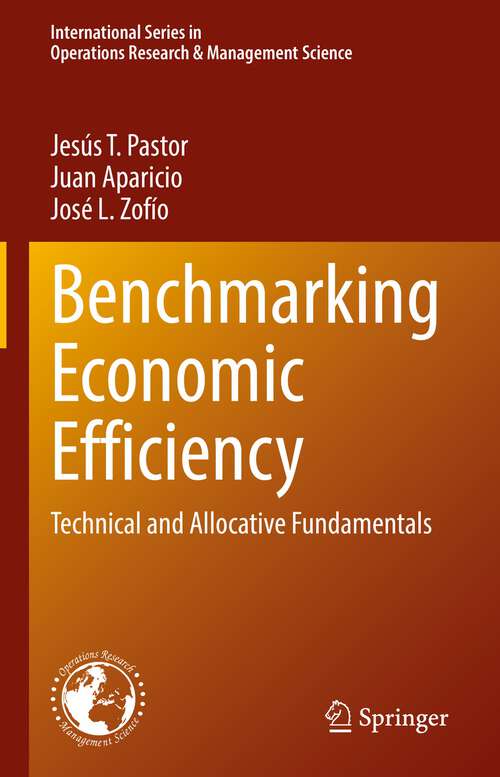Benchmarking Economic Efficiency: Technical and Allocative Fundamentals (1st ed. 2022) (International Series in Operations Research & Management Science #315)
By: and and
Sign Up Now!
Already a Member? Log In
You must be logged into Bookshare to access this title.
Learn about membership options,
or view our freely available titles.
- Synopsis
- This book unifies and extends the definition and measurement of economic efficiency and its use as a real-life benchmarking technique for actual organizations. Analytically, the book relies on the economic theory of duality as guiding framework. Empirically, it shows how the alternative models can be implemented by way of Data Envelopment Analysis. An accompanying software programmed in the open-source Julia language is used to solve the models. The package is a self-contained set of functions that can be used for individual learning and instruction. The source code, associated documentation, and replication notebooks are available online. The book discusses the concept of economic efficiency at the firm level, comparing observed to optimal economic performance, and its decomposition according to technical and allocative criteria. Depending on the underlying technical efficiency measure, economic efficiency can be decomposed multiplicatively or additively. Part I of the book deals with the classic multiplicative approach that decomposes cost and revenue efficiency based on radial distance functions. Subsequently, the book examines how these partial approaches can be expanded to the notion of profitability efficiency, considering both the input and output dimensions of the firm, and relying on the generalized distance function for the measurement of technical efficiency. Part II is devoted to the recent additive framework related to the decomposition of economic inefficiency defined in terms of cost, revenue, and profit. The book presents economic models for the Russell and enhanced graph Russell measures, the weighted additive distance function, the directional distance function, the modified directional distance function, and the Hölder distance function. Each model is presented in a separate chapter. New approaches that qualify and generalize previous results are also introduced in the last chapters, including the reverse directional distance function and the general direct approach. The book concludes by highlighting the importance of benchmarking economic efficiency for all business stakeholders and recalling the main conclusions obtained from many years of research on this topic. The book offers different alternatives to measure economic efficiency based on a set of desirable properties and advises on the choice of specific economic efficiency models.
- Copyright:
- 2022
Book Details
- Book Quality:
- Publisher Quality
- ISBN-13:
- 9783030843977
- Related ISBNs:
- 9783030843960
- Publisher:
- Springer International Publishing
- Date of Addition:
- 08/13/22
- Copyrighted By:
- Springer Nature Switzerland AG
- Adult content:
- No
- Language:
- English
- Has Image Descriptions:
- No
- Categories:
- Nonfiction, Business and Finance, Mathematics and Statistics
- Submitted By:
- Bookshare Staff
- Usage Restrictions:
- This is a copyrighted book.
Reviews
Other Books
- by Jesús T. Pastor
- by Juan Aparicio
- by José L. Zofío
- in Nonfiction
- in Business and Finance
- in Mathematics and Statistics
